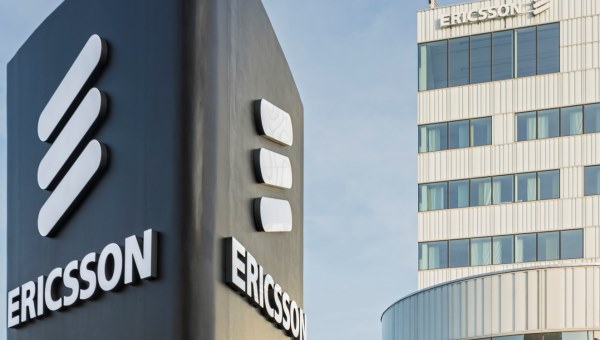Telecom
How Technology has Changed in the Past Ten Years

By Michael Björn
Predicting the future is easy – we do it all the time. The only tricky part is getting it right. Since it is that time of year again when we publish our annual 10 Hot Consumer Trends – our tenth anniversary of the report – let us look back at a decade of consumer technology trends.

Late in 2011, Ericsson Consumer Lab released the first 10 Hot Consumer Trends report and I remember quickly piecing it together on a plane on the way to a customer meeting. I have been the main author of all our trend reports since then, but this one certainly was written in a different and more innocent age.
Nevertheless, with the trend “Social media redefining news reporting” it already pointed to a world ruled by Tweet. And this wasn’t just about gossip columns, the report was crystal clear about serious news reporting being redefined by social networking.
The build out of 4G LTE networks formed much of our thinking back then, and the mobile technologies which would be built on top of them. The smartphone app industry and, in particular, the social media industry was already exploding around this time.
Take Twitter, for example. In 2007, Twitter users were sending around 20,000 tweets per day. By 2010, the numbers had spiked up to about 50 million tweets per day. Between 2014 and 2018, the average time spent on social media apps increased by almost 60 percent, as we found in our social media consumer report.
However, innovation in this space moves fast which makes it difficult to predict what will happen next. In the same report, we found that of the ten most popular social media platforms of 2008, five no longer existed ten years later and only two remained in the top ten.
In late 2012, we launched our second report which more or less exactly repeated a trend from the previous year, something that hasn’t happened since. It was about women driving the smartphone market, signifying that internet use was now massively mass market and no longer a “tech” thing.
The third report in 2013 launched the idea that biometrics would be everywhere, with a trend called “your body is the new password”, something to think about the next time you authorize an online purchase by showing your face to your phone. Four years later, Apple announced FaceID for the first time, based on depth-sensing infrared technology which also formed the basis of Xbox Kinect, launched some years earlier.
In late 2014 we took a big leap into the future with the launch of our 10 Hot Consumer Trends 2015 report and the trend “Mind Sharing” predicting that a wearable device to communicate with others directly through thoughts would be available by 2020. How wrong one can be! Or maybe just a bit too early, given that Neuralink in 2020 showed a pig with a brain implant and OpenBCI announced a brain sensing device that seamlessly attaches to VR goggles.
But the biggest media headlines came with the 2016 report and the trend “AI ends the screen age”. Ericsson says the smartphone will be dead in 5 years, yelled the press in what became almost like a global meme.
“What we really wanted to highlight was the early signs towards a paradigmatic shift where our everyday internet device eventually sits on our heads instead of in our palms. Hence, we followed that up in the 2017 trends with the idea that we are moving into a world of subjective experiences where AR glasses immerse us in an “augmented personal reality” and we eventually live in a “merged reality” without differing between physical and digital experiences.
In fact, the trend reports of the five last years have been quite much focused on this coming paradigmatic shift, with the 2018 trends highlighting the need for a fundamentally new user interface with “your body is the user interface” and the 2019 trends adding the idea of “my digital twin” before we wrapped all these predictions into a unified concept as the Internet of Senses in the most recent report.
While we firmly believe that physical reality will continue to merge with a multisensory digital experience going forward, we have decided to focus on a completely different development in our next report.
Michael Björn is Head of Research Agenda and Quality at Consumer & IndustryLab
Telecom
MTN, Lynk Global Make Africa’s First Satellite-to-Mobile Call

MTN South Africa, in partnership with Lynk Global, has successfully conducted Africa’s first satellite-to-mobile phone call touted as a groundbreaking development.

This historic trial, conducted in Vryburg, North West province, marks a major step toward bridging connectivity gaps in underserved and rural regions across the continent.
The test involved making a voice call using a standard smartphone connected via a low-Earth orbit (LEO) satellite.
This innovative approach eliminates the need for traditional network infrastructure, providing a viable solution for remote areas with limited or no mobile coverage.
According to Charles Molapisi, CEO of MTN South Africa, this initiative aligns with the company’s broader strategy to extend network coverage to hard-to-reach areas.
“This achievement demonstrates our commitment to leveraging cutting-edge technology to ensure connectivity for all, regardless of location,” Molapisi stated.
The trial also assessed SMS capabilities over the LEO satellite connection, proving the technology’s potential for widespread application.
With successful implementation, satellite-to-mobile communication could revolutionise telecommunications in Africa, enabling digital inclusion and economic opportunities in regions previously disconnected from mainstream networks.
This milestone underscores the growing role of satellite technology in Africa’s telecommunications landscape.
By integrating satellite solutions with existing mobile networks, MTN and Lynk Global aim to provide seamless connectivity that overcomes traditional infrastructure challenges.
Telecom
Smart Treasure Investment Team’s Initiatives Eradicate Poverty, Says Aminu

Samson Aminu, also known as Smile, has described the Smart Treasure Investment Team (ST Team) as a transformative force that has empowered its members and significantly contributed to poverty eradication.

Samson Aminu
Aminu, a VIP 9 member of the team, shared his experiences on Friday during the official car presentation ceremony held at the regional office in Lagos. Having recently received a Lexus RX350 and an international vacation from the team, Aminu recounted how the organization has positively changed his life.
“The Smart Treasure Investment Team has really imparted my life positively and changed my status from zero to hero,” he said.
He revealed that his first earnings through the team allowed him to relocate to a new apartment and acquire gadgets. “I’ve purchased various items for myself and my family, and established an operational center in Ilorin,” he added.
The ST Team, according to Aminu, aligns its activities with the United Nations’ 16 Sustainable Development Goals (SDGs), which include youth empowerment, poverty eradication, support for education in rural areas, and community service.
“The ST Team has come to eradicate poverty in Africa and across the globe. We are teaching people how to catch fish by themselves and making them financially stable,” Aminu explained.
He highlighted the organization’s initiatives such as providing allowances to civil servants, feeding the elderly, orphans, and widows, and investing in agriculture to sustain local communities.
“If the ST Team lasts long for another three years, the government would be grateful to this project as it would bring peace and comfort to the society,” Aminu said.
He applauded the leaders of the organization, Dr. Harold and Mentor Tina, for their sincerity, honesty, and dedication to humanity. “I urge the government to support this project, which has brought significant change to Nigeria in just two years,” he said.
Aminu, who has over 15 years of experience in multilevel marketing, commended the team for its exceptional standards and sustainability.
Telecom
15-Year-Old Autistic Artist, Kanye, to Unveil World’s Largest Art Canvas on Autism Awareness Day

Kanyeyachukwu Tagbo-Okeke, affectionately known as Kanye, has become a beacon of inspiration for Nigeria’s youth. The 15-year-old autistic artist is set to unveil what is expected to be the world’s largest art canvas by an individual on April 2, 2025, World Autism Awareness Day, at Eagles Square in Abuja.

Kanye’s journey began at the tender age of two when he first showed a proclivity towards art. Despite facing challenges associated with autism, Kanye has flourished as an artist, earning accolades and the nickname “Young Picasso” for his exceptional abstract paintings.
The young prodigy’s attempt at breaking the Guinness World Record started in November. 2024, as part of the Zeebah Foundation’s ‘Impossibility Is A Myth’ project. This initiative not only showcases Kanye’s extraordinary talent but also aims to raise funds for a state-of-the-art autism resource center in Abuja, highlighting the need for greater support and inclusion for individuals with autism.
Kanye’s story aligns with MTN Nigeria’s recent “Go Make A Difference” (Go M.A.D) campaign, which encourages Nigerians to take bold steps and create positive impacts in their communities. Onyinye Ikenna-Emeka, MTN’s Chief Marketing Officer, emphasised how Kanye embodies the Go M.A.D philosophy: “MTN’s mission is to connect people all over the world. Kanye is connecting art lovers, and people all over the world as well. He is a true icon, breaking barriers and proving that nothing is impossible”.
The unveiling event will be attended by key dignitaries, including FCT Minister Nyesom Wike, and Minister of Arts, Culture, Tourism and the Creative Economy, Hannatu Musawa. This high-profile support underscores the significance of Kanye’s achievement and its potential to inspire change.
Kanye’s father, Tagbo Okeke, stressed that this record attempt goes beyond personal achievement. “We started this awareness campaign to tell parents that no child should be left behind, that they are Fabulous, Autistic and Talented,” he said. The family’s efforts, including opening a gallery in Abuja where art therapy workshops are conducted, demonstrate their commitment to supporting others on the autism spectrum.
As Nigeria’s youth witness Kanye’s remarkable journey, many are inspired to make their own difference, regardless of the challenges they face. Kanye’s story proves that with determination, support, and the right tools – such as those provided by initiatives like MTN’s Go M.A.D campaign – young Nigerians can achieve extraordinary feats and create meaningful change in their communities.
Kanye’s upcoming unveiling of his monumental artwork is not just a personal triumph; it’s a powerful statement about inclusion, perseverance, and the limitless potential of Nigeria’s youth to make a difference.

 Telecom2 days ago
Telecom2 days agoIHS Nigeria Hosts Telecom Industry Stakeholders to Discuss Protection of Critical National Infrastructure in Lagos State

 E-Financial2 days ago
E-Financial2 days agoTitan Trust Bank Selects Oracle FSS for Core and Digital Banking Technology

 General News2 days ago
General News2 days agoNCS to Launch Electronic System for Cash Declarations at Airports

 News2 days ago
News2 days agoSanwo-Olu Hails Jumia for Giant Strides in Growing Nigeria’s E-Commerce Sector

 E-Financial2 days ago
E-Financial2 days agoIMF Appoints Elumelu, Nigerian Businessman to Advisory Council

 Telecom2 days ago
Telecom2 days agoMTN Champs Continental Relays: Over 1,000 Athletes Gear Up for Lagos Showcase

 General News2 days ago
General News2 days agoAquaterra Energy Secures Multi-million-dollar well Intervention Contract with Intrepid Energy in Nigeria

 E-Financial4 hours ago
E-Financial4 hours agoNigeria Gets Fresh $500m World Bank Loan for Economic Stimulus Programme


























